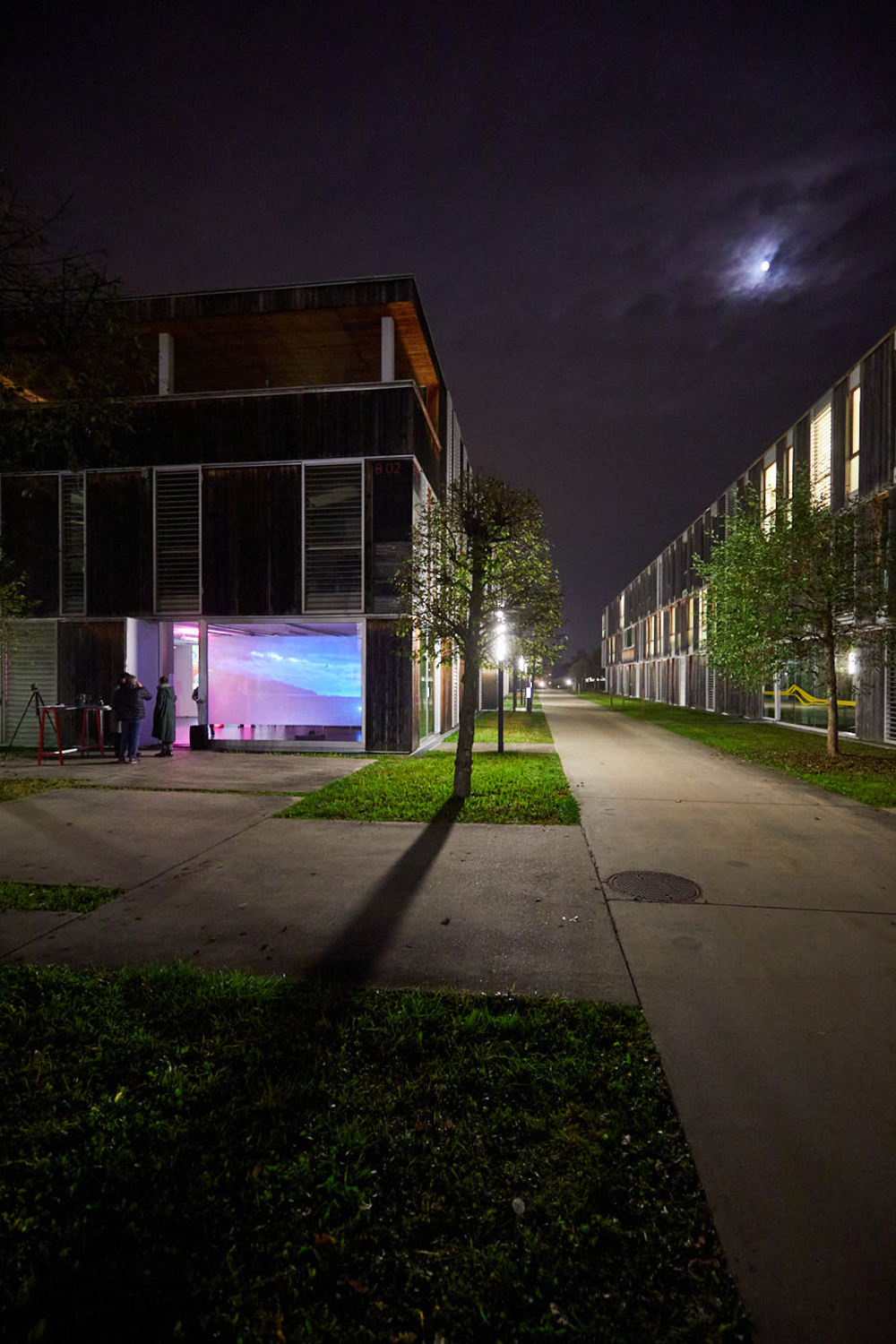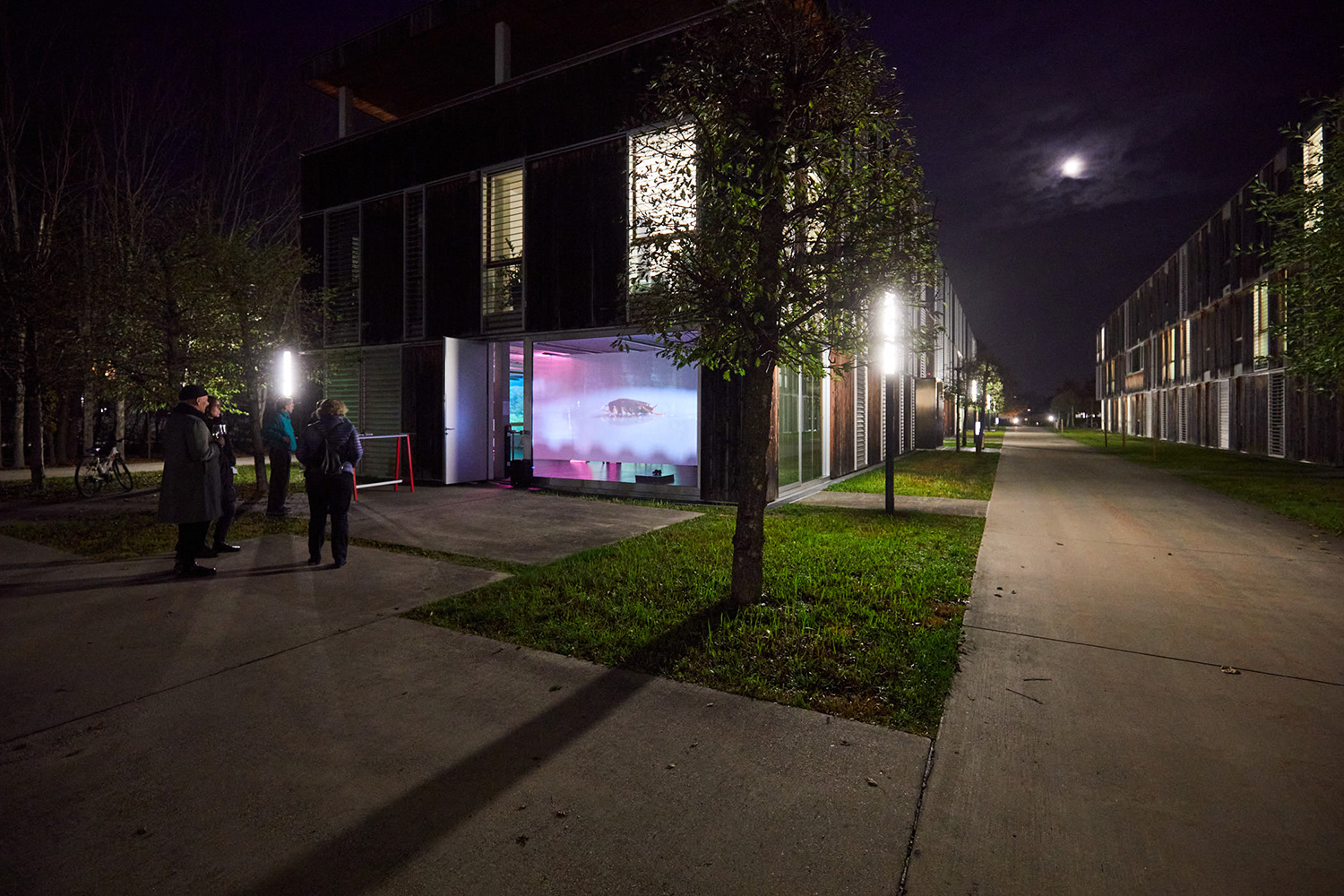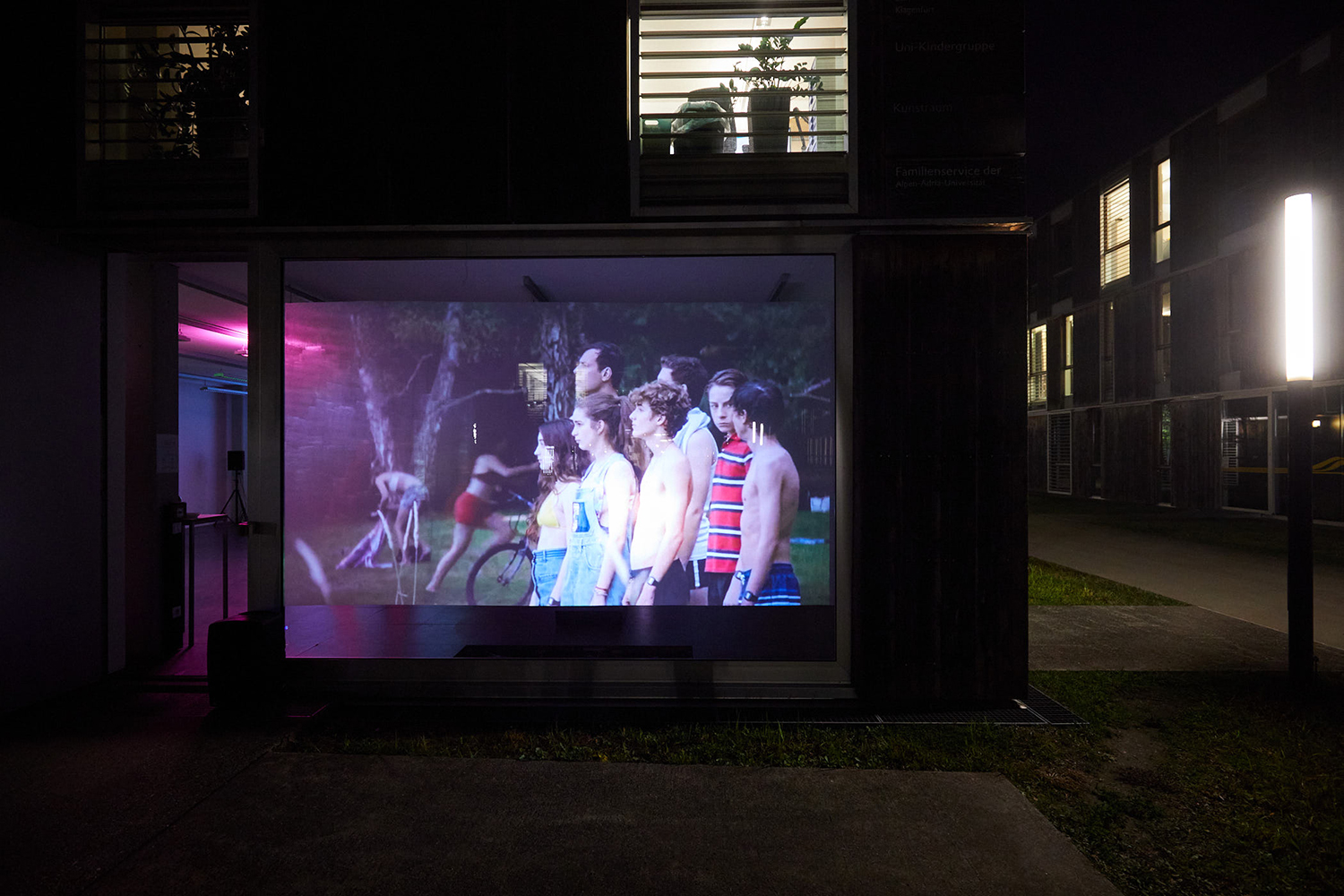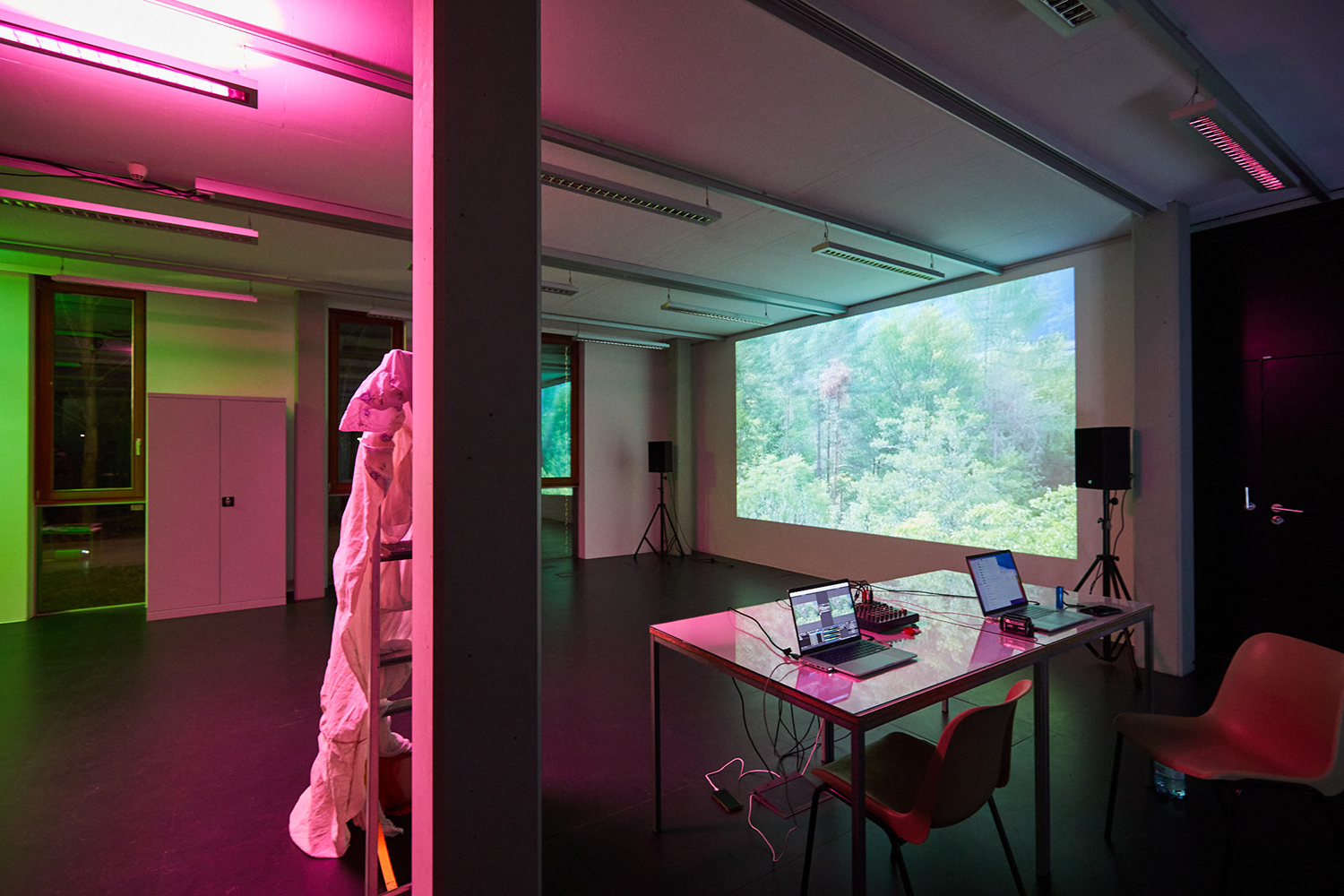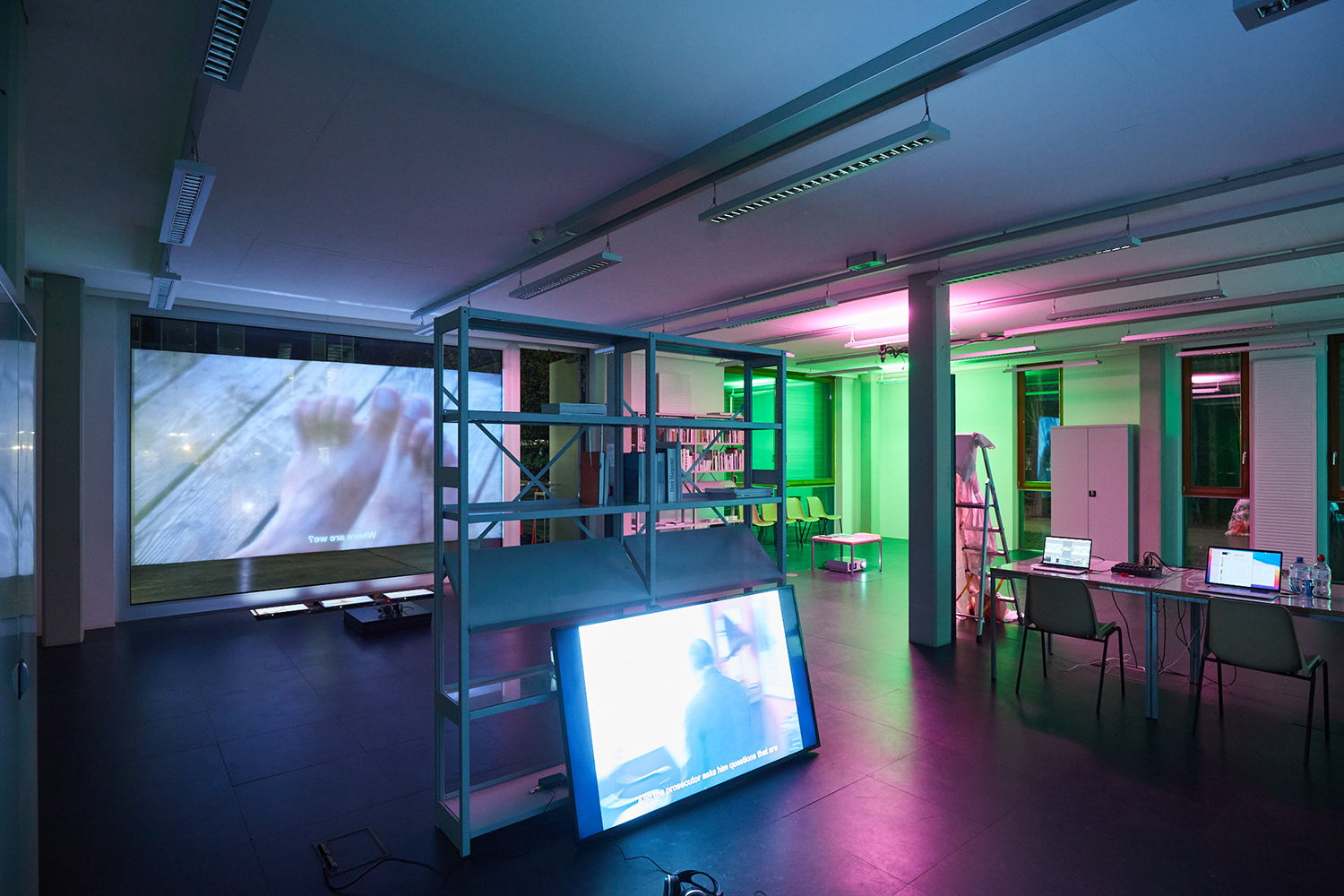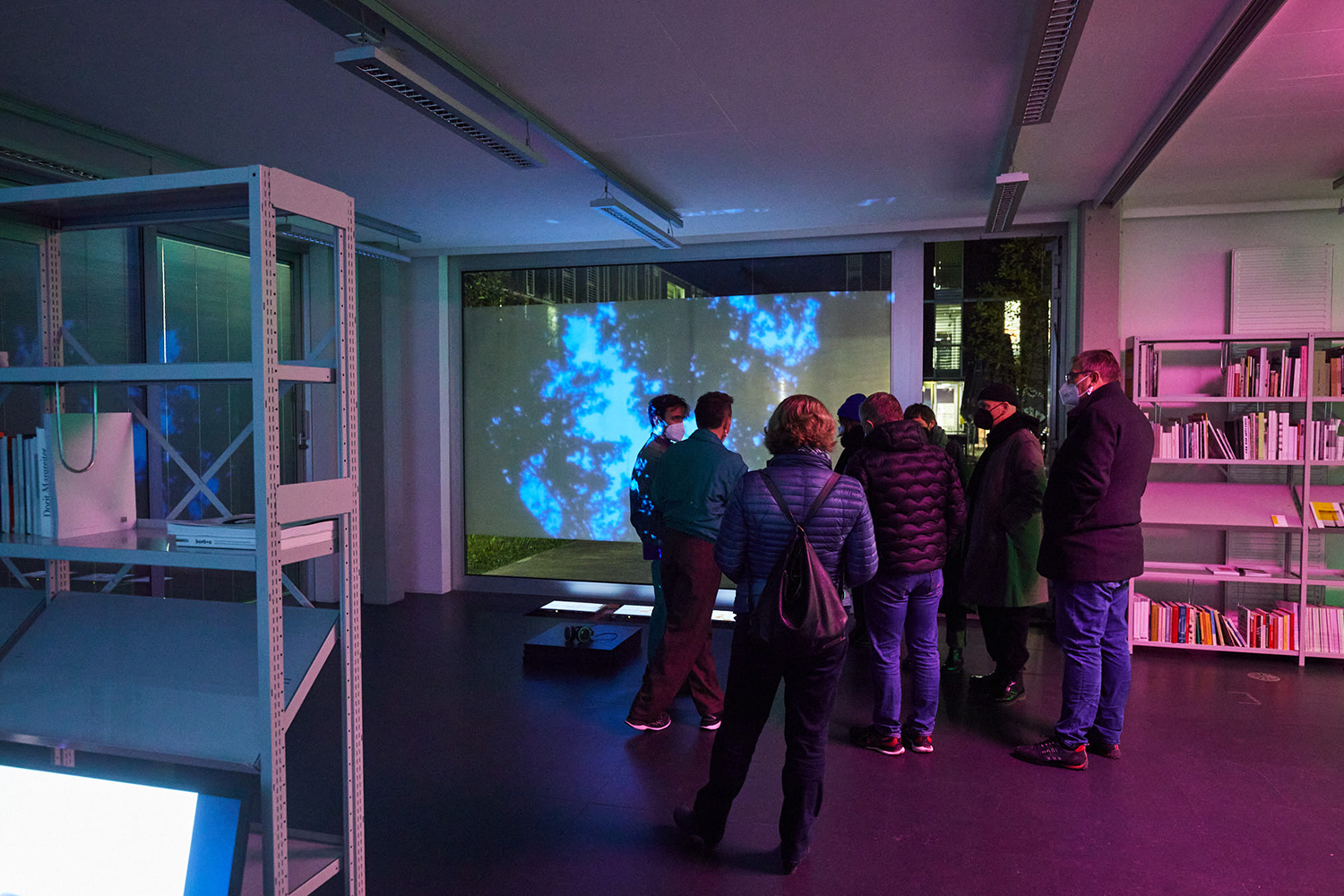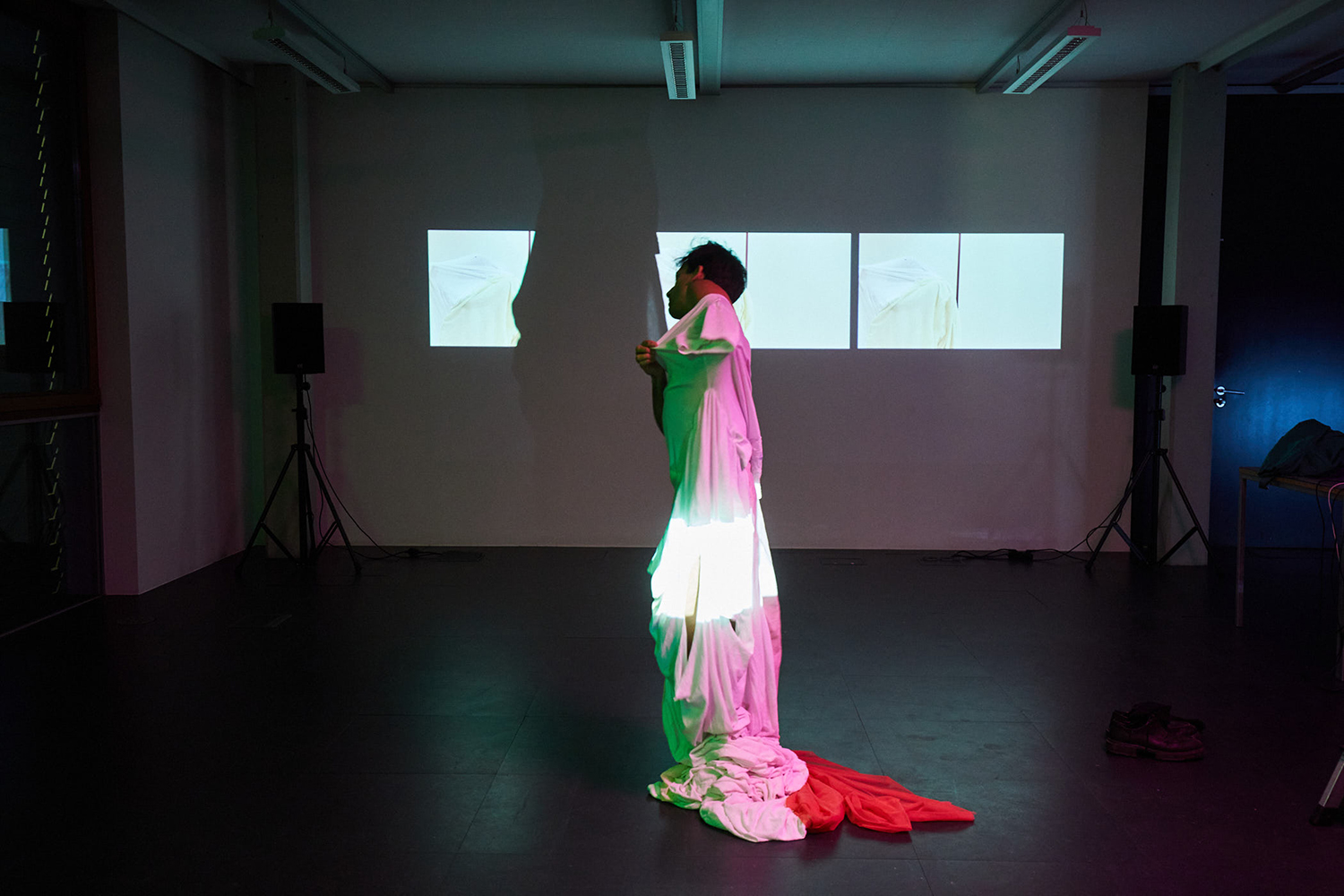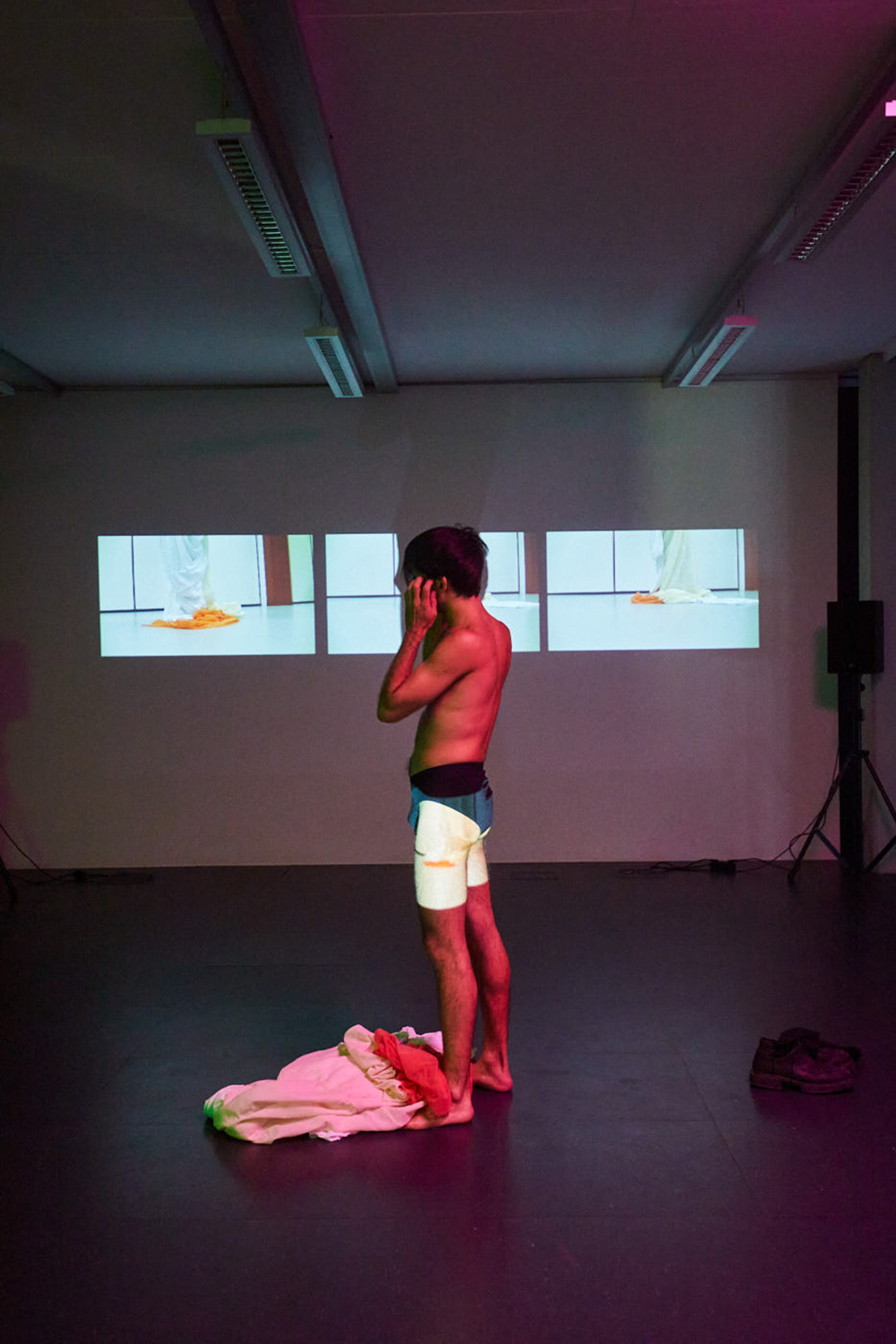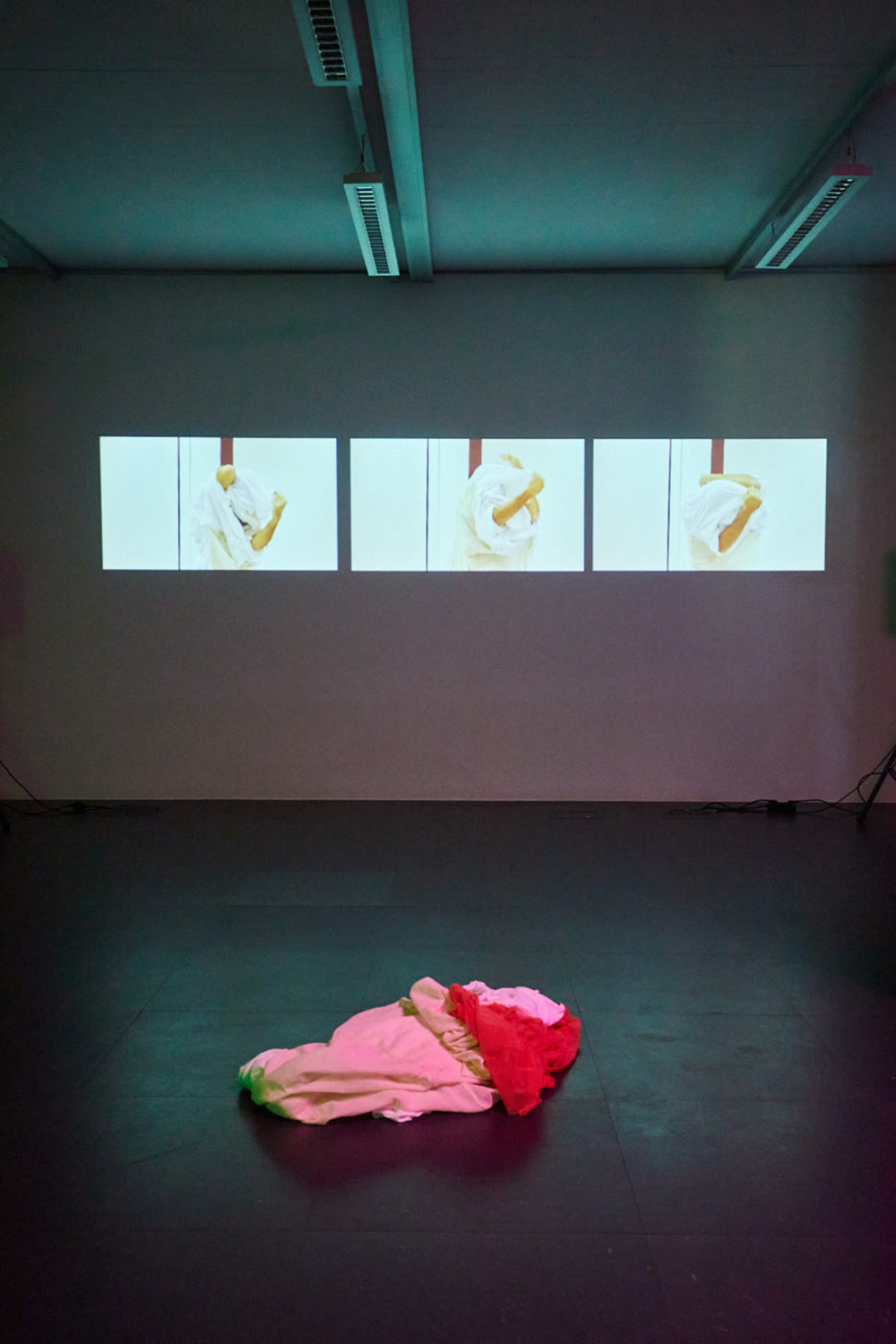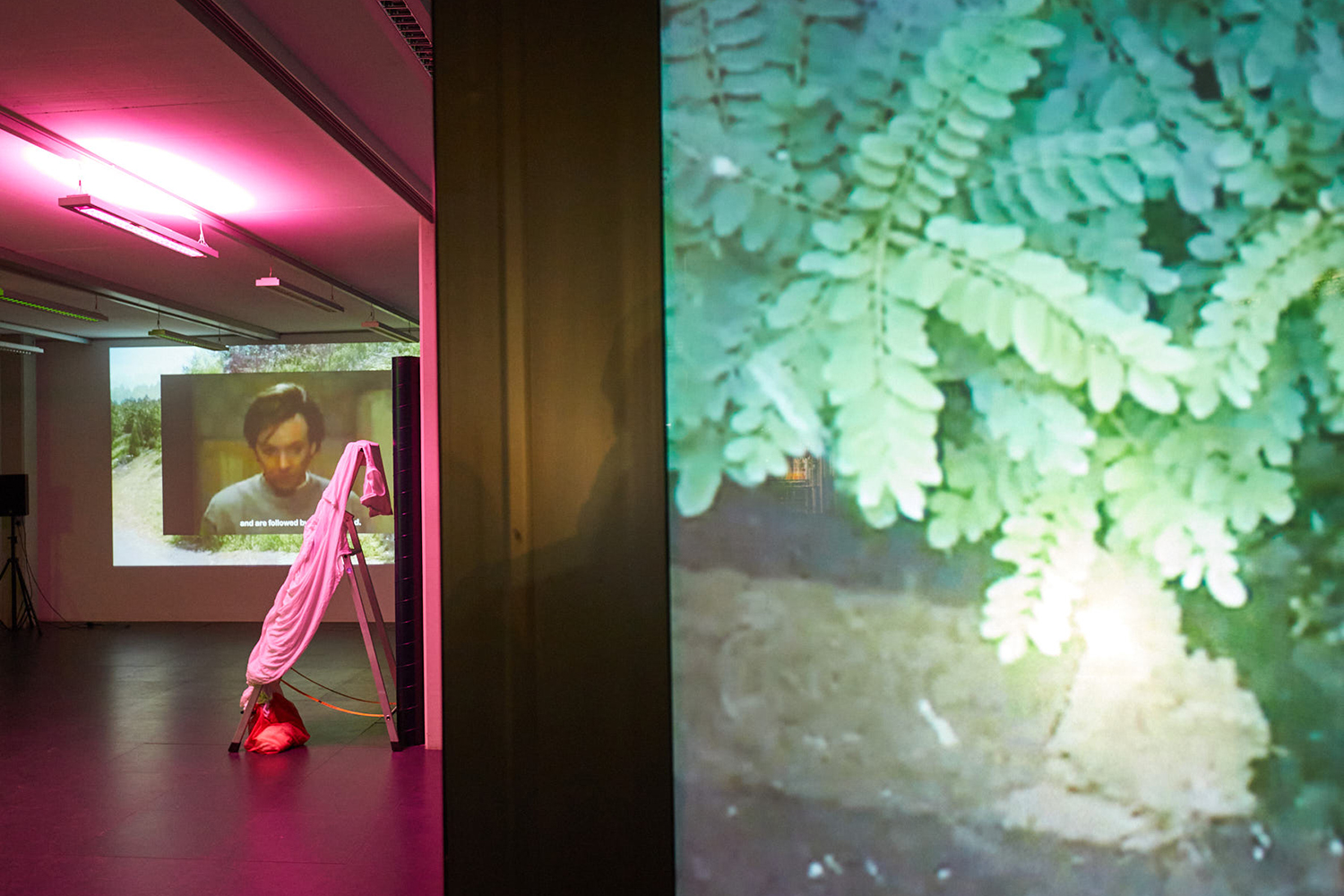Performances, November 16, 2021, 6 and 7 pm
Open space, from 4 pm
“Thinking of a future,” say Guilherme Maggessi and Rafał Morusiewicz, “always implies a horizon.” In their performance at Kunstraum Lakeside, the duo conducts a transmedial experiment dedicated to fabulating a future by employing various theorizations of futures, from José Esteban Muñoz’s queer utopia to Wendy Hui Kyong Chun’s “future as (a) memory.” While the former employs the adjective “future” as an intrinsic modality of queerness, looming on the horizon and always not-yet-here, the latter imagines a future as an upgrade, and not a radical change, to what already exists. In both, the present is a transition zone and a space for acting in the here-and-now, which continuously realigns itself to foresight, marked by coordinates of openness, dialogue ability, and inclusion.
While strategies of appropriation, collage, and montage play a central role in Maggessi and Morusiewicz’s artistic practice, they are not conceived as merely formalist instruments. Instead, the duo employs their generative powers in the construction of their own “real utopias.” “Historically and otherwise, montage and collage are not fundamentally aesthetic practices; they are part of the mimetic excess that is found throughout every society,” writes the literary scholar Marcus Boon on the historical development of these techniques. “Framing them aesthetically limits their radical potential and the potential for the transformation of the societies we live in.”* Accordingly, the performative installation in Kunstraum Lakeside evolves from the reusage and restaging of queer (hi)stories, from the combination of found and own film, text, and musical elements. “Through borrowing strategies from expanded cinema,” explain Maggessi and Morusiewicz, “we wish to experiment with the modalities of immersiveness and its potentiality in creating a situation of ‘in-the-meantime’ instead of narrating a distant utopian ‘then-and-there.’”
The Statement in Kunstraum Lakeside is intended as the result of the convergence of Morusiewicz and Maggessi’s individual artistic practices, which manifests as a polylog between diverse narratives, media, and temporalities. Rafał Morusiewicz works with collaging experimental films. By superimposing and recutting films from various contexts (such as communist Poland in the 1950s to 1980s) with diverse audiovisual and text elements, they reference the present but also imagine a future with the aid of the past. They address the reappropriation and collection of narratives, through which they question the value typically conceded to the authorship of primary sources. Guilherme Maggessi, on the other hand, revisits images of Orientalization—as they were often developed and propagated in the modern era—by (re)producing them in new contexts. He subjects existing paintings and drawings to a visual “decomposing” process through different techniques, such as silk-screening and textile work.
* Marcus Boon, In Praise Of Copying (Cambridge, MA: Harvard University Press, 2010), 1–285, here: 172.
Guilherme Maggessi (b. 1994 in Brazil) lives and works in Vienna.
www.guilherme-maggessi.com
Rafał Morusiewicz (b. 1979 in Poland) lives and works in Vienna.
www.rafalmorusiewicz.com
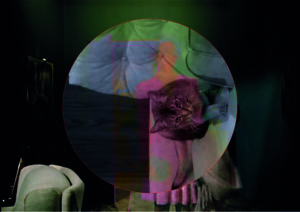
Collage: The Colbys, episode “Crossroads” (dir. Don Medford, created by Richard & Esther Shapiro, Robert & Eileen Pollock, 1987); Mladshiy nauchnyy sotrudnik (Teenage Cosmonauts, dir. Vladimir Rodchenko, 1978)
